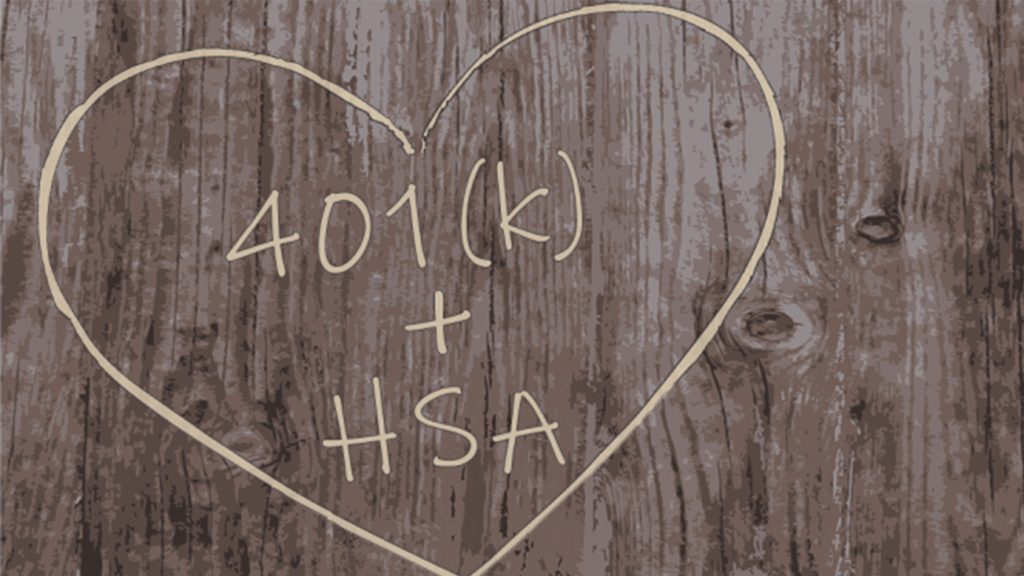If you’re looking for the ultimate retirement savings combo, look no further than a 401(k) plan and a Health Savings Account (HSA). Combining these two options gives employees greater flexibility in structuring their overall financial strategy. In this blog post, we’ll explore why 401(k)s and HSAs make the perfect couple.
Why Use a 401(k)?
A 401(k) is an employer-sponsored retirement plan that offers many tax benefits, including deferrals from your salary and potential employer contributions. 401(k)s have no income limits and allow you to contribute up to $19,500 annually as of 2021 ($26,000 for those over 50). Depending on your employer’s plan, you may also be eligible for matching contributions. In addition, you pay taxes only when you withdraw funds at retirement age—not when you initially contribute or earn interest on the account.
Why Use an HSA?
HSAs are similar to 401(k)s in that they offer tax-advantaged savings options for medical expenses during retirement. Unlike with a traditional IRA or 401(k), contributions to HSAs can be used tax-free for medical expenses in the current year or saved for future need. That means your contributions are not taxed now, nor will they be taxed later when withdrawn—even if they are used for non-medical purposes. You can also roll over unused funds from one year to the next and take advantage of investment options available through some HSA providers.
The Benefits of Combining a 401(k) & HSA
They have similar goals.
The goal of a 401(k), like any retirement account, is to help you save for those expenses in retirement. Did you know that you can use an HSA in the same way? It’s a great way to save for healthcare expenses in retirement. Since HSA dollars carryover from year-to-year and you can take the funds with you if you switch jobs, this account is great to use when you’re retired.
They make an effort to be flexible and can weather tough times.
You want this pairing by your side if you run into a financial emergency.
Depending on how your 401(k) is set up, you may be able to use funds in your account for emergencies. See the IRS website to learn about hardship distributions, early withdrawals, and loan options. (Note that if your plan allows for any of these, you will likely lose a portion of your funds due to various fees imposed).
An HSA is arguably even more flexible, especially if it’s within the boundaries of an emergency healthcare expense. You can use funds in your account at any time for a health-related expense as defined by Internal Revenue Code (IRC) Section 213(d). Not enough funds built up to cover the expense? You can pay for it with other funds and reimburse yourself later. Alternatively, you can borrow from future HSA contributions if your employer has the option for an HSA BRIdge.
If your emergency isn’t an eligible medical expense, you can also withdraw money from your HSA with a similar financial penalty applied.
Their finances are in control.
Both 401(k)s and HSAs are money-saving tools. Additionally, you can invest the money in these accounts to see your funds grow over time.
They have a great support system.
Here are some ‘friends’ you might find in the mix:
- Their FSA pals Limited FSA and Dependent Care FSA, supporting eligible dental/vision and dependent care expenses, respectively
- Don’t forget Commuter Benefits, which makes workplace transit/parking more affordable
- The always-reliable Specialty Accounts providing support in unique, creative ways
They bring out the best in each other.
Have we convinced you yet? Pairing a 401(k) & HSA together is the smart thing to do because:
- It enables you to save for retirement
- You can grow your funds over time through investments
- If an emergency financial situation happens, there are ways to withdraw funds
How Can Retirees Take Advantage of This?
Retirees who use both a 401(k) and an HSA benefit from greater flexibility when it comes to managing their finances in retirement while still taking full advantage of all applicable tax benefits offered by these two popular savings accounts. By combining both plans into their overall financial strategy, employees could potentially maximize their long-term savings while taking full advantage of their employer’s matching contribution program whenever available. In short, a 401(K) & HSA together truly do make a perfect power couple!



